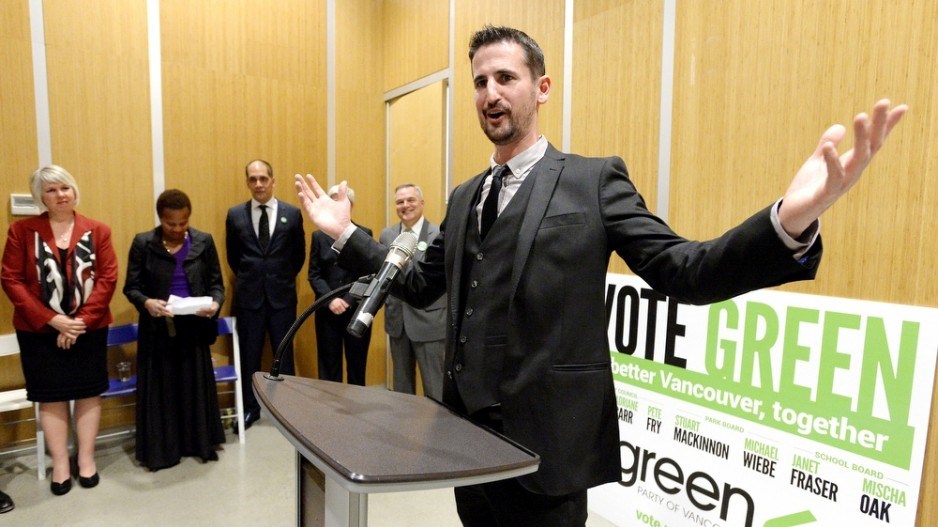B.C. needs greater regulation of digital election advertising before it can harm democracy, Union of B.C. Municipalities delegates agreed Sept. 16.
A resolution said expansion of “sophisticated data analytics, weapons-grade communication technology, artificial intelligence and machine learning, alongside under-regulated online campaign and engagement tools have emerged to use psychographic profiling and predicting techniques to identify voter behaviour and persuade the persuadable using a variety of online engagement methods including but not limited to news, profiles, groups, memes and shareables.”
Further, it noted, deceptive and coercive digital campaigns have manipulated electoral outcomes in the Trump campaign in the United States, Brexit in the United Kingdom, in developing nations and in B.C.’s 2017 provincial and 2018 local elections.
B.C.’s provincial parties all worked with either election-influencer AggregateIQ Data Services Ltd. (AIQ) or with Facebook in analyzing voter data.
The parties themselves have confirmed this information in some cases by privacy reports and in other cases.
The information gelled after federal and provincial privacy commissioners Daniel Therrien and Michael McEvoy said 2019 that the Victoria-based data-gathering company not only gave B.C. political parties voters’ personal data but also may have influenced Europe’s Brexit vote and the 2016 U.S. presidential election, as it gave far more such data to foreign clients.
As such, AIQ failed in its Canadian privacy law obligations when it used and disclosed millions of voters’ personal information in B.C., the U.S. and the U.K., the commissioners said.
B.C.’s Greens used AIQ to build a supporter database but party director of communications and strategy Stefan Jonsson said at the time the company was not doing advertising, voter profiling or list-building, the primary activities that the privacy commissioner has found broke B.C. laws.
B.C.’s Liberals as a party did not retain AIQ’s services, but three candidates worked with the company in the 2017 provincial election. Those candidates were Doug Clovechok in Columbia River-Revelstoke, Mike de Jong in Abbotsford West, Todd Stone in Kamloops-South Thompson and David Calder in Saanich South. Only Calder lost in the election.
The commissioners also said municipal politicians worked with AIQ.
It’s such activity that Vancouver city councillor Michael Wiebe told delegates puts democracy at risk. He called the rise of digital campaigns “a new political machine for the 21st century” and an emerging threat to democracy.”
Vancouver sponsored the resolution, asking Victoria to expand the definition of advertising to cover digital political campaigns and tools, and mandate their disclosure of how and when data is being collected and used, and by whom.
However, North Cowichan Mayor Al Sebring opposed the resolution asking how ElectionsBC would enforce such a thing. He said he would prefer a resolution that said ElectionsBC “grow a pair.”




